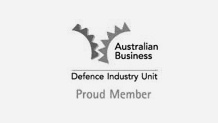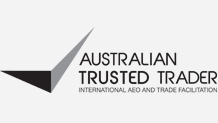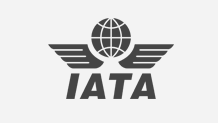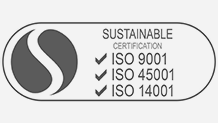Fracht Australia News - June 2018
29/5/2018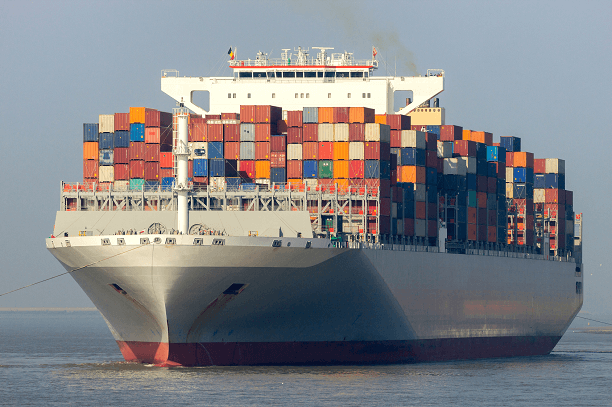
“When you make a commitment you build hope. When you keep it you build trust.”
Anonymous
AROUND THE WORLD
- HONG KONG: The Hong Kong – Zhuhai – Macau (HKZM) Bridge is set to open to the public on 1 July 2018. The 55 kilometre bridge and undersea tunnel is the world’s longest sea bridge. It links the two key regions, Hong Kong and Macau, with mainland China uniting approx 60 million people across the sea. The USD 15 billion bridge consists of three cable-stayed bridges, three manmade islands and a 6.7 kilometre undersea tunnel. 420,000 tonnes of steel (60 times that of the Eiffel Tower) and 80,000 tonnes of pipes were required to complete this extremely challenging project. Travel time between the cities will be reduced from four hours to less than one hour.
- IRAN: The US withdrawal from the “Iran deal” could have significant impact on the international logistics industry. After the removal of US and EU sanctions against Iran in January 2016 international businesses including shipping lines, airlines freight forwarders etc. flocked to Iran in large numbers. Following Donald Trump’s decision MSC was the first shipping line to announce its withdrawal from Iran services and other carriers are bound to follow suit.
- BRAZIL: The Customs strike action which started in October / November 2017 unfortunately is still going on. The situation seems to be deteriorating and unions are maintaining only a minimum of 30% staffing levels. Thousands of containers are delayed daily with some imports waiting up to 21 days to clear customs. To make matters worse Brazilian truck drivers commenced to strike on 24 May to protest escalating fuel prices!
- RAMADAN: The holy month of Ramadan has started and will end around 15 June depending on the sighting of the New Moon Crescent. In most Muslim countries this means reduced working hours and slower response times. Depending on the individual countries the Eid Al-Fitr Holidays will fall between 13 and 20 June. In some countries, e.g. Saudi Arabia, Customs will be closed even longer, from 8 to 23 June.
- MALAYSIA: Shipments of scrap and waste are not allowed to discharge from the vessel in Malaysian Terminals without valid import permits. Shipping lines won’t accept bookings without a copy of the import permit and a Letter of Indemnity.
- CHINA: New customs regulations effective 1 June 2018 mandate that VERY comprehensive and detailed shipment information must be lodged electronically at least 24 hours before the shipment is loaded onto a ship or plane. This includes e.g. shipper’s ABN numbers and consignee’s USCI (Unified Social Credit Identifier).
- INDONESIA; Similar to China, also Indonesian Customs now requires more detailed information. This includes NPWP (Indonesian Tax ID) as well as HS code in the cargo description. This information must be included in the Shipper’s Letter of Instruction.
AIRFREIGHT NEWS
- PIECE LEVEL SCREENING FOR ALL EXPORT AIRFREIGHT SHIPMENTS FROM AUSTRALIAN AIRPORTS will commence on 1 March 2019. Currently this high level security requirement is only imposed for shipments to the USA. This change was influenced by a July 2017 terrorist plot to bomb a plane leaving Sydney airport.
- QANTAS ANNOUNCED A NEW MELBOURNE – BALI SERVICE. The daily B737-800 will commence on 27 June 2018.
- SINGAPORE AIRLINES LAUNCHED ITS NEW MELBOURNE TO WELLINGTON FLIGHT on 4 May. The new service between Singapore, Melbourne and Wellington will operate on Tuesday, Friday, Saturday and Sunday.
- SINGAPORE AIRLINES ALSO COMMENCED ITS NEW DAILY B787-10 DREAMLINER SERVICE TO PERTH in early May. More than 50 years ago Perth became the airline’s first destination in Australia.
- THANKS TO A CODESHARE AGREEMENT WITH RUSSIA’S S7 AIRLINES, JAPAN AIRLINES can now offer services to Irkutsk and Novosibirsk. This increases JAL’s Russian destinations from 20 to 22.
- QATAR AIRWAYS SIGNED A LETTER OF INTENT TO PURCHASE ANOTHER FIVE B777 FREIGHTERS valued at USD 1.7 billion. The B777F is capable of flying 9,070 km with a maximum payload of 102 tonnes. Qatar’s freighter fleet currently stands at two B747-8Fs, eight A330Fs and 13 B777Fs.
- ACCORDING TO THE LATEST IATA FIGURES WORLDWIDE AIRFREIGHT HAS SLOWED TO 1.7% in March but year to date figures for the first three months of 2018 are still quite strong. International airfreight increased by 6% and the Asia Pacific region grew 6.2%. Generally airfreight capacity to Australia has been quite tight recently and there are still some industry concern that the unprecedented capacity crunch in late 2017 may be repeated in 2018.
BUDGET HIGHLIGHTS FOR IMPORTERS, EXPORTERS AND THE LOGISTICS INDUSTRY
The recently released Federal Budget included some interesting items for our industry:
- Australian Trusted Traders won’t be required to produce country of origin documents for goods imported under “certain free trade arrangements”.
- From 1 July 2019 Australian port operators will be charged a new biosecurity levy AUD 10.02 per TEU (twenty foot equivalent unit) or AUD 1.00 per tonne of non-containerised cargo. Australian ports are already amongst the most expensive in the world. This increase will make our ports even less competitive.
- Effective 1 July 2019 tobacco will require an import permit AND customs duties for tobacco must be paid immediately upon importation – not when it is entered for home consumption from a bonded warehouse. The government expects these measures to add AUD 3 billion additional revenue in 2019/20.
- AUD 400 million are earmarked to duplicate Sydney’s Port Botany rail line to the Enfield terminal. This will reduce truck movements and road congestion significantly.
- The expansion of the Urban Congestion Fund through the AUD 3.5 billion Roads of Strategy Importance initiative is also a welcome step as this will upgrade key freight routes.
SEAFREIGHT NEWS
- MSC UPDATED ITS AUSTRALIA EXPRESS NORTH EUROPE PORT ROTATION. In order to enhance coverage of the Netherlands, Germany and the Baltic Region, MSC incorporated direct calls to Rotterdam, Gdynia, Klaipeda and Bremerhaven. Northbound transit times from Australia to Gdynia will improve by six days and to Klaipeda by eight days.
- MSC INTRODUCED A NEW SEASONAL SERVICE TO NORTHLAND PORT. This is excellent news for New Zealand fruit exporters.
- BASS ISLAND LINE DEPLOYS A NEW LARGER VESSEL to service King Island. The multipurpose ship “John Duigan” provides a triangular service between the port of Grassy on King Island, Geelong, Victoria and Bell Bay in Tasmania.
- THE OCEAN NETWORK EXPRESS (ONE) joint venture founded by K Line, MOL and NYK expects to achieve savings of USD 1 billion per year thanks to the merger of these three Japanese shipping lines. The three lines have signed off their final annual accounts per 1 April and will now record their container earning through their equity in ONE. The new venture is forecasting net profits of USD 110 million this year, 313 million next year and 648 million in the third year.
- FUEL PRICES HAVE INCREASED BY 20% SINCE 2014 TO REACH USD 440.00 PER TONNE recently which prompted most shipping lines to introduce an “Emergency Bunker Surcharge” of USD 55.00 to 75.00 per TEU (twenty foot equivalent unit). MSC, MAERSK and APL are amongst the carriers that introduced the surcharge.
TRANSPORT INSURANCE IS IMPORTANT
“General Average” is a tool for sharing losses arising from a marine casualty between parties involved in that casualty. The vessel owners, bunker owners, container shell owners and cargo owners will all contribute their share to the losses incurred. General Average was declared for the recently fire-stricken ship Maersk Honam which has finally docked at Dubai in late May. The vessel salvor Richard Hogg Lindley fixed the salvage security at 42.5% of the cargo value as well as a general average deposit of 11.5%. In other words, the owners of undamaged cargo are required to provide security bonds of 54% of the value of their cargo BEFORE release of the cargo. This is an important reminder that insurance cover should always be obtained for all your shipments, especially for seafreight. All carriers have very limited liabilities and as the example above demonstrates, you may in some cases even have to pay when your goods are safe and undamaged. Generally Australian truckers, terminals and warehouses accept zero (0) liability for losses or damages.












